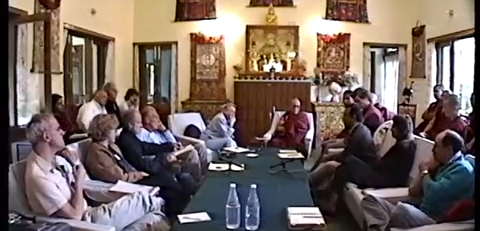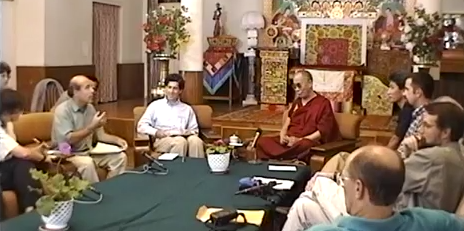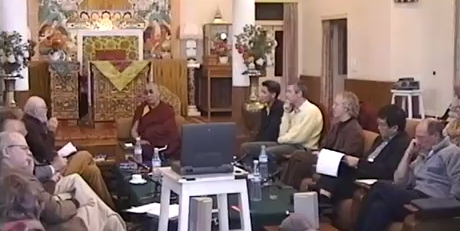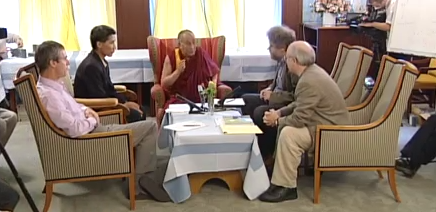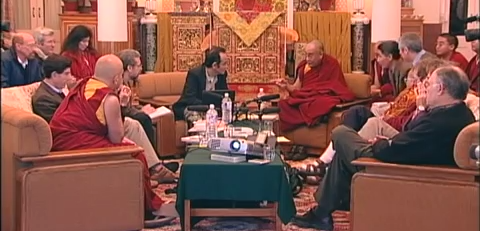We’re honored to host a special free livestream event on January 9, 2021 at 10:30 p.m. EST with His Holiness the Dalai Lama, climate activist Greta Thunberg, and leading scientists to explore steps for addressing the urgent challenges presented by this threat.
Convening Type Archives:
1987 Mind & Life Dialogue I
This groundbreaking meeting, which began the Dialogue series, was inspired by a shared interest in opening a conversation between Buddhist thought and cognitive science to mutually inform and enrich these two distinct modes of exploring existence. LOCATION: Dharamsala, India Participants
1989 Mind & Life Dialogue II
Buddhism and neuroscience have parallel but quite distinct traditions for examining consciousness and its relation to the body. These traditions go back at least 2,500 years to the Buddha and Hippocrates. While both disciplines place great emphasis on experience and reason, their methods of research and verification are radically different. While neuroscience examines mind-brain processes …
1990 Mind & Life Dialogue III
The topic of this Dialogue is the role of emotional states in physical health. Over the past 2,500 years, Buddhists have explored this topic through contemplative practices and logical analysis. Their research has been conducted within the context of spiritual disciplines aimed at the release from physical and mental suffering. The principal means for pursuing …
1992 Mind & Life Dialogue IV
The topic of this Dialogue focuses on the delicate areas of sleeping, dreaming, and dying. The meeting brings to discussion those “marginal states” in which our habitual, reified sense of personal identity is challenged, and in which concomitantly a host of phenomena of great significance for human existence become intensified or are made manifest. Current …
1995 Mind & Life Dialogue V
This Dialogue focuses on the study of altruism and compassion in Western science. It addresses these topics from a highly multidisciplinary perspective since altruism and compassion are clearly significant for both the social and life sciences. A historical perspective on the role of compassion in science, and the bias in the study of negative rather …
1997 Mind & Life Dialogue VI
This Dialogue explores contemporary understandings of the natural world that have arisen through groundbreaking advances in physics and astrophysics made during the 20th century. These advances have exerted a profound influence on our conception of the world, changing it fundamentally from the views that reigned until the end of the 19th century. For example, through …
1998 Mind & Life Dialogue VII
The purpose of this Dialogue is to compare the epistemologies of two major intellectual traditions: Western science culminating in modern quantum physics, and Eastern contemplative sciences as represented by Tibetan Buddhism. What are the roles of observer and consciousness? Are there fundamental limits to what can be said about the world? What are the foundations …
2000 Mind & Life Dialogue VIII
This Dialogue explores a perennial human predicament: the nature and destructive potential of “negative” emotions; for example, when jealousy turns into murderous rage. The Buddhist tradition has long pointed out that recognizing and transforming negative emotions lies at the heart of spiritual practice. From the perspective of science, these same emotional states pose a perplexing …
2001 Mind & Life Dialogue IX
This Dialogue presents an overview of modern methods for investigating human brain function, and discussions of the application of these methods to understand the changes produced by meditation practice. LOCATION: Madison, Wisconsin Participants




